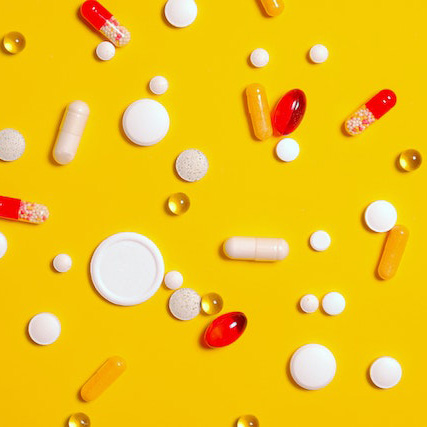
Hydrocodone Addiction: Signs And Solutions
Hydrocodone is an opioid that is used for severe pain and has a high addiction risk. Its misuse can lead to dependency, requiring detoxification and treatment. This article explores hydrocodone addiction, signs of dependency, withdrawal processes, and treatment solutions.
Detox Safely At Home With Elite Home Detox
At Elite Home Detox, our team provides personalized in-home detox support and comprehensive aftercare planning, including family counseling, to ensure a discreet and successful recovery journey.
Hydrocodone is a strong opioid medication, and it is typically prescribed for severe pain management because of its effective pain-relieving properties.
This drug is often found in combination with acetaminophen as it helps enhance its effectiveness, but this also raises significant concerns about its addictive potential.
Hydrocodone’s addictive properties are a growing concern for users. While this medication has great potential for medical purposes, its use is closely linked with a high risk of dependency. This fact makes it clear that understanding its medical benefits versus its risks is crucial.

Table of Contents:
How Hydrocodone Addiction Works
Hydrocodone addiction refers to a physical and psychological reliance on hydrocodone. This addiction typically develops when individuals use the drug longer or in higher doses than prescribed, leading to tolerance and dependence. Hydrocodone withdrawal symptoms usually begin to show when the drug usage is reduced or stopped, pointing to potential addiction.
Statistics from the Centers for Disease Control and Prevention (CDC) reveal a concerning trend in hydrocodone abuse. They report that since 1999, over one million people have died from drug overdoses attributed to opioids, including hydrocodone, highlighting just how severe the opioid crisis is.
Several factors contribute to hydrocodone addiction. Initially, the drug’s ability to block pain signals and produce feelings of euphoria makes it particularly addictive. Over time, however, users may develop a tolerance to the drug and require larger or more frequent doses to achieve the same effects.
Psychological factors, such as a history of substance abuse or chronic pain, along with genetic predispositions, also play significant roles in hydrocodone addiction.
The online community, especially forums like hydrocodone addiction Reddit, provides valuable insights into personal experiences with addiction. These discussions often highlight the challenges of overcoming dependency, the effectiveness of various treatment options, and the importance of having strong support networks. They are important resources for anyone who is looking for understanding and needs help in their recovery journey.
Common symptoms of hydrocodone use and dependence can vary from person to person but often include both physical and psychological indicators.
- Symptoms of hydrocodone dependence often start with a tolerance to the medication, leading people to consume higher doses in order to achieve the same pain relief or euphoric effects. As dependence becomes even stronger, users may experience intense cravings that lead them to prioritize drug use over other activities.
- Physical symptoms of hydrocodone use include drowsiness, nausea, constipation, and, in more severe cases, slowed breathing. These symptoms can become worse as the addiction progresses and can pose significant health risks.
- Behavioral signs of addiction often include changes in social behavior, like withdrawal from friends and family, decreased interest in activities that were once enjoyed, and continued use of hydrocodone despite these negative consequences.
Hydrocodone addiction side effects extend beyond immediate physical health concerns, affecting mental health. This can cause increased anxiety, mood swings, and depression. Financial difficulties and legal issues may also arise as individuals struggle to maintain their supply of the drug.
Symptoms of withdrawal from hydrocodone are a clear indicator of physical dependence. These withdrawal symptoms can be severe, including muscle aches, sweating, insomnia, diarrhea, and vomiting. The onset of withdrawal symptoms after stopping the drug demonstrates the body’s reliance on the substance and proves just how challenging it can be to overcome addiction without professional help.
Hydrocodone withdrawal can be very challenging, and it begins when a person who has developed a dependency on hydrocodone reduces their use or stops taking the drug altogether. This withdrawal process, when coming off hydrocodone, is the body’s way of readjusting to the absence of the substance. Hydrocodone withdrawal symptoms can range from mild to severe, depending on how long someone was taking the drug and how much of it they were taking. Hydrocodone withdrawal effects often include feelings of anxiety, insomnia, sweating, muscle aches, and more severe symptoms like nausea, vomiting, and diarrhea.
Detoxing off hydrocodone is the first step towards recovery. During this stage, a patient undergoes a treatment that safely removes the drug from the body. Medical detoxification is crucial because it provides a supervised and supportive environment where withdrawal symptoms can be managed safely and effectively by healthcare professionals. This process often involves medications to ease symptoms and prevent complications, making it a safer option than attempting to detox alone.
The best way to detox from hydrocodone usually involves a combination of medical supervision and supportive care. Hydrocodone detoxification treatment plans are tailored to the individual’s needs, considering the severity of their addiction and any other health issues they may have. During a medical detox, patients might receive medications to help minimize hydrocodone detox symptoms, reducing the discomfort associated with withdrawal and lowering the risk of relapse.
It’s important to view detox as just the first step in a comprehensive treatment plan that includes therapy, counseling, and a strong support system to address the underlying causes of addiction and to help encourage long-term recovery.
Solutions and Treatments for Hydrocodone Addiction
Treating hydrocodone addiction requires a comprehensive approach that combines medical treatments, behavioral therapies, and personalized supportive care.
Successful hydrocodone withdrawal treatment often starts with medically supervised detoxification to manage withdrawal symptoms safely. This is the best way to get off hydrocodone. Following detox, a range of medications may be used to reduce cravings and normalize brain function, significantly improving the chances of long-term recovery.
Behavioral therapies are also a very important part of hydrocodone treatment. These focus on modifying the patient’s attitudes and behaviors related to drug use while also encouraging healthy life skills. These therapies can help patients understand the root causes of their addiction, develop coping strategies to deal with triggers and maintain sobriety. Methods such as Cognitive Behavioral Therapy (CBT), Motivational Interviewing (MI), and contingency management can be highly effective in treating opioid addiction.
Supportive care options, including peer support groups and family therapy, provide emotional support and reinforce the lessons learned in behavioral therapy. These groups can be a great help and provide a sense of community and shared experience that is invaluable during recovery.
Long-term recovery from hydrocodone addiction involves ongoing commitment and often includes continued therapy, participation in support groups, and sometimes maintenance medication. Relapse prevention is a very critical component and focuses on identifying and managing triggers and stressors that could lead someone to relapse and return to drug use.
Finding Help and Support
Finding the right help and support is one of the most important things you can do for anyone struggling with hydrocodone addiction. There are numerous resources available, from rehabilitation centers offering comprehensive treatment programs to support groups that provide a space for people to share their experiences and provide encouragement for one another. These groups, when coupled with professional medical care, play an important role in the recovery process, offering hydrocodone withdrawal help and a strong network of support to fall back on.
Community and family support is also an important factor during hydrocodone recovery. The encouragement and understanding from loved ones offer a foundation of stability and motivation, no matter how long hydrocodone withdrawal lasts.
For those looking for help, starting with a healthcare provider can guide you to reputable rehabilitation centers and introduce you to effective support groups. Remember, getting help is a sign of strength, and there are so many paths that lead to recovery and support, ensuring no one has to face hydrocodone withdrawal alone.
Recognizing Hydrocodone Addiction: One Step Closer to Recovery
Understanding and recognizing the signs of hydrocodone addiction is the first step toward healing. This condition, which is marked by both physical and psychological dependence, makes it necessary for a comprehensive approach to treatment and recovery. The journey from addiction to recovery is challenging, but getting hydrocodone withdrawal help has the potential for profound transformation and healing.
We strongly encourage anyone struggling with hydrocodone addiction or those who notice the signs in someone they care about to get professional help. Recovery is not only possible, it’s a path that many have walked before, leading to a life free from the chains of addiction.
If you or someone you know is battling with this issue, reach out for help. Professional guidance can make all the difference, moving from the temptation to find Vicodin for relief to getting medical and therapeutic support for a healthier future. Recovery starts with a single step, and that step is reaching out for help.
Detox Safely At Home With Elite Home Detox
With Elite Home Detox, you will be assigned a care coordinator to help keep you on-track to support your recovery. Once a custom rehabilitation plan has been developed between you and your expert team, one of our team members will come to your home and stay with you as you detox discreetly in the comfort of your own home.
Once detox is complete, we will work with you to create a practical and effective aftercare plan complete with ongoing recovery support. We can also help counsel friends and family on how they can best support you in taking this next step. We’re here and ready to help. Reach out to us for a custom consultation today!



 Harsh Brar is a Board Certified Family Nurse Practitioner specializing in addiction medicine and pain management. He holds a Master of Science in Nursing from Samuel Merritt University and ensures all Elite Home Detox clinical content aligns with current medical safety standards.
Harsh Brar is a Board Certified Family Nurse Practitioner specializing in addiction medicine and pain management. He holds a Master of Science in Nursing from Samuel Merritt University and ensures all Elite Home Detox clinical content aligns with current medical safety standards.